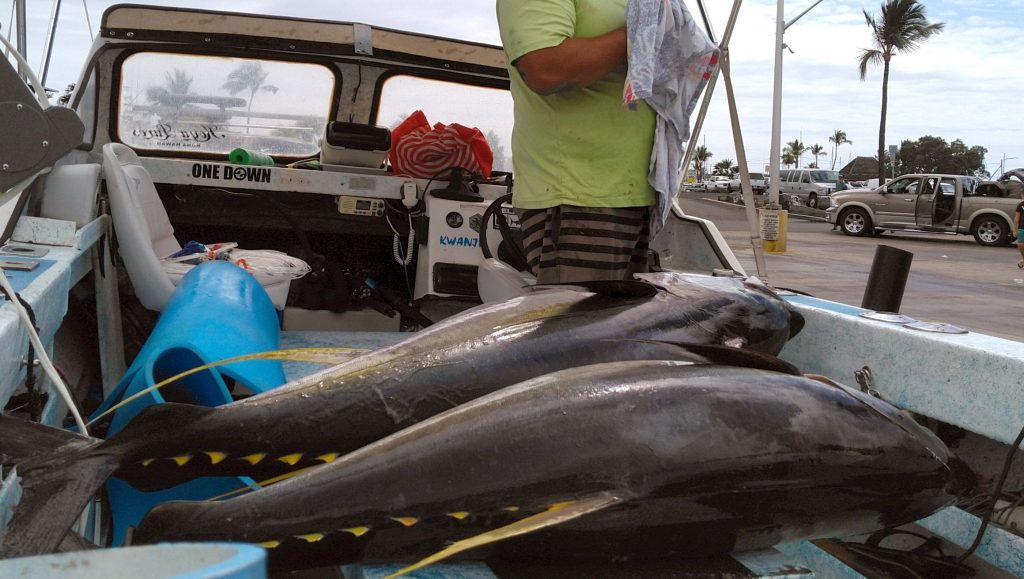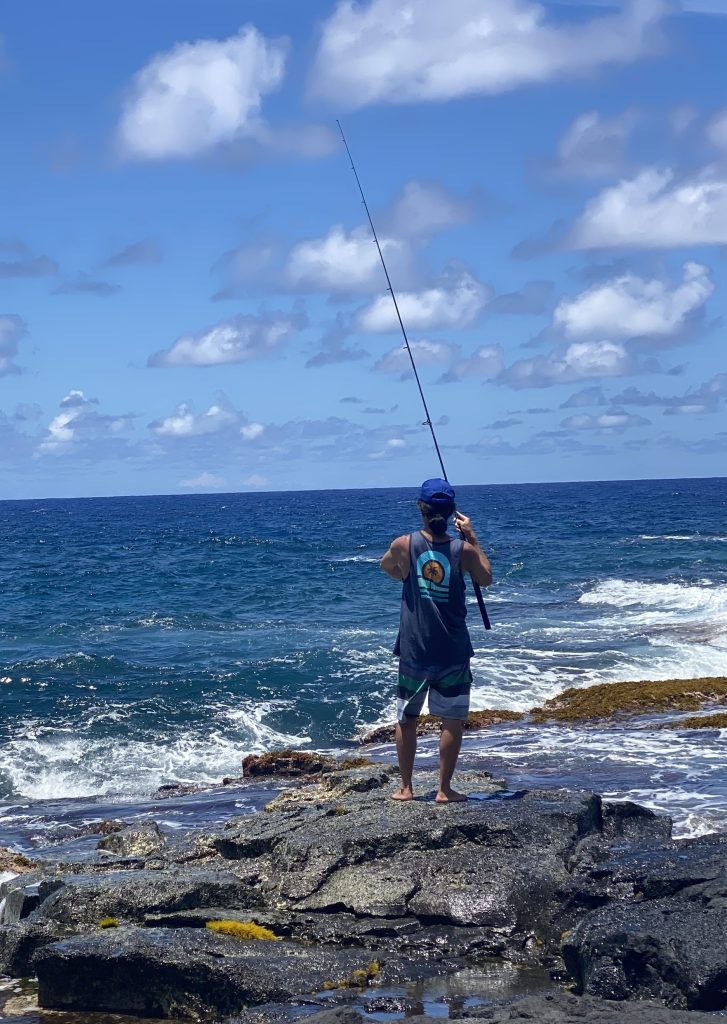7/11/23 – Hawaiʻi Marine Recreational Fishing Survey (HMRFS)
By Tom Ogawa, HMRFS Program Coordinator
Have you ever been approached by someone at the beach or a public boat ramp asking some questions about your fishing trip? Chances are, you spoke with one of our dedicated field surveyors who collects information about non-commercial (recreational) fishing in Hawaiʻi. The Hawaiʻi Marine Recreational Fishing Survey (HMRFS) was established in 2001 as a collaborative effort between the Hawaiʻi Division of Aquatic Resources and NOAA Fisheries. Since then, the HMRFS project has continued to collect data such as how long you fished for and what you caught during your fishing trip. Some of you who have been interviewed may have wondered what we do with the data. The collected information is used to monitor the status and trends of non-commercial fishing activities and ultimately helps resource managers to evaluate the health of our fisheries. For more detailed information about HMRFS, please visit https://dlnr.hawaii.gov/dar/fishing/hmrfs/.
Over the past several years, HMRFS has been working with NOAA Fisheries’ Marine Recreational Information Program (MRIP) to improve how we conduct the survey. We recently switched from paper forms to field tablets for recording information from interviews. The tablets have streamlined data processing and delivery as well as significantly reduced our consumption of paper. We also now follow a more rigid sampling schedule and conduct surveys only on randomly assigned days and time periods rather than allowing surveyors to change survey dates due to poor weather or other factors that may impact fishing activity. Sticking to a schedule significantly reduces sampling bias which provides a more accurate, overall representation of non-commercial fisheries.

‘Ahi fever! Tunas are among the most popular target species for private boat fishers
The next step to improving the survey design is to certify a roving shore survey through MRIP then implement the new survey statewide. The roving survey would allow for greater geographic coverage as well as more flexibility to interview shore-based fishers, including kayak fishers, spear fishers and net fishers which are logistically more difficult to intercept. We also plan on revising the interview questions which would result in greater detail and ultimately more effective management strategies. The information you provide to our field surveyors will help support local management efforts, strengthen food security in our communities and build a sustainable future!

Whipping from shore for papio
